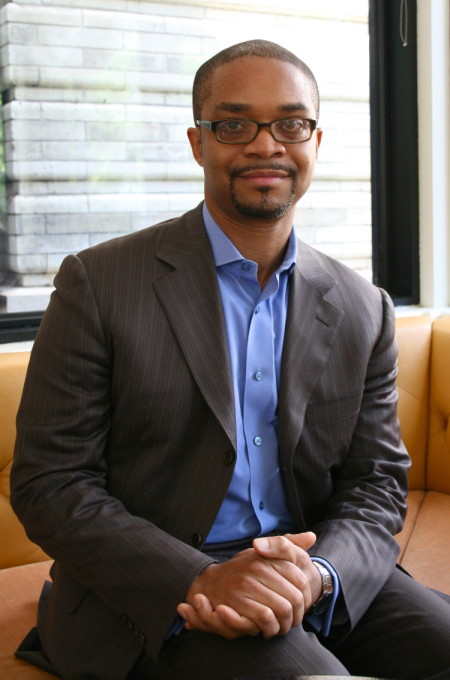
Darryl Harper ’08 D.M.A. began working professionally on clarinet at the age of sixteen in his native Philadelphia. He has performed for over twenty years in venues throughout the world and has recorded several albums on the Hipnotic Records label. His credits include opening concerts for Max Roach, The Billy Taylor Trio, and The Wynton Marsalis Quartet; dates with Freddie Bryant, Orrin Evans, Tim Warfield, Dee Dee Bridgewater, Carla Cook, Roscoe Mitchell, Dave Holland, and Uri Caine; and a two-year stint with Regina Carter. He holds music degrees from Amherst College, Rutgers University, and New England Conservatory and currently teaches on the faculty at Virginia Commonwealth University. Harper's projects as a leader include The Onus Quintet, The Onus Trio, Into Something, and The C3 Project.
Currently living in: Richmond, VA
Last year, you released your 7th studio album. How has your process for recording an album changed and/or remained the same over the years? One similarity to previous projects is that I have been working with many of the same people since my very first album twenty years ago. There are a lot of things that have become intuitive for us, not only in the performances themselves, but also in the mixing, mastering, graphic design, and other post-production elements. A big difference between the last project and those that preceded it was the larger number of musicians involved (nearly two dozen) and the larger volume of music. This was definitely our most ambitious recording project.
How do you continue to push boundaries and remain inventive? I think boundaries, by their very nature, yield interesting questions. When you spend a lot of time examining them, boundaries of culture or genre, for example, you often come to recognize them as porous, fluid, even provisional. I am attracted to boundaries, because there is so much interesting stuff happening at them.
Why was pursuing a DMA important to your own professional development? I had been out of school for about 10 years before I came to NEC to do the DMA. To have a few years to focus entirely on developing my playing, my improvisational concepts, my ideas about my work, and to have the opportunity to be constantly inspired and challenged by the students and faculty during my time at NEC was a real gift. A decent portion of the work I have done in the past 10 years was incubated at NEC. Many of the people I now count among my colleagues I met while at NEC.
How has the C3 Project and working with video, dance, and poetry shaped your music-making? Disciplinary boundaries are among those hotbeds you asked about earlier. There is a lot happening there, which is why you can find musicians working across disciplines going back hundreds of years or more. Sometimes my work with a video artists or choreographer might change the way that I hear and interpret a piece, or the way that I render it. I might see something in their work that focuses my attention in a way that otherwise would not have happened. In the case of one C3 Project poet, I was so inspired by his work that I composed a 30-minute song cycle on six of his poems.
